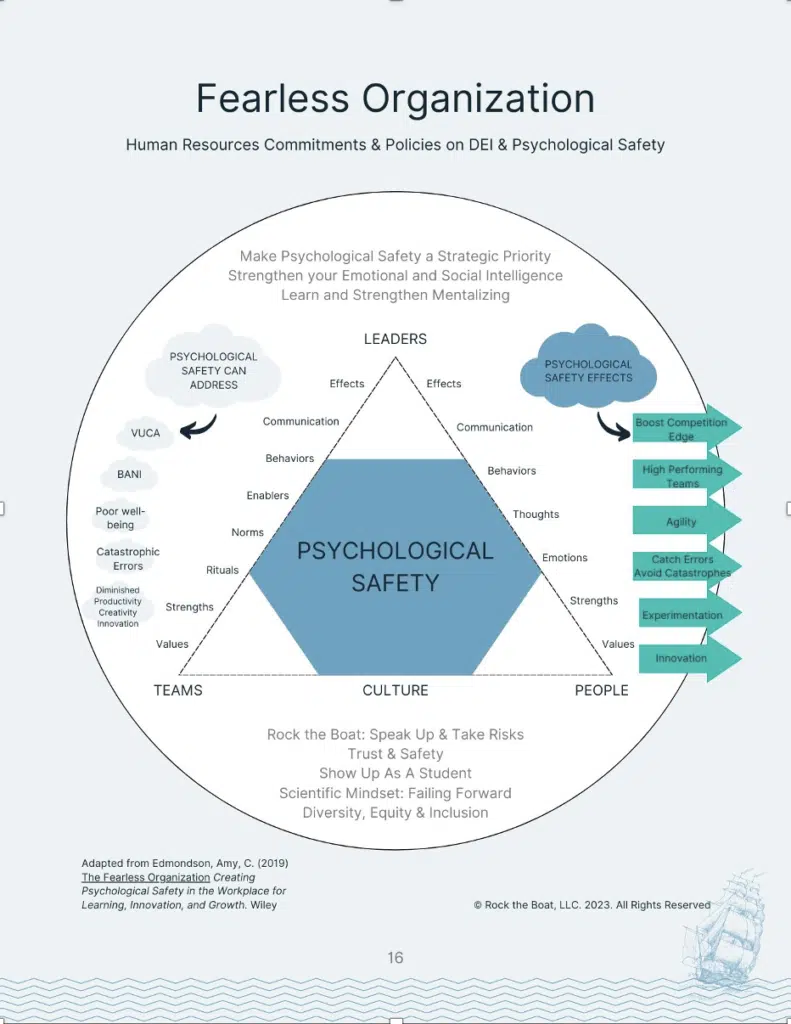Fearless Organization Trending, Leveling Up, and Coming of Age
Do you want to boost your competitive edge, innovate, and develop high-performing teams? If yes, adopt and make “psychological safety” an aspirational core business strategy.
How to Develop Psychological Safety?
Step 1: Begin with Leadership and Human Resources Buy-In
Executive and team coaching provides an effective solution to assess and evaluate the current culture to determine the presence or absence of psychological safety, including administering surveys, conducting interviews, collecting anonymous reporting systems, and making observations by joining meetings. Coaching would assess current organizational values, beliefs, mission, and behaviors. Next, identify and define the desired vision of the new culture, create a comprehensive plan and strategy, and implement rollout through training and workshops.
Enroll in Our firm’s Psychological Safety Workshops and Training.
These workshops and training can be customized to meet the specific needs of each team or organization. They can include interactive team-building activities, discussions, and learning on the following topics:
o Trust Building
o Effective Communication Skills
o Emotional and Social Intelligence
o Empathy
o Perspective Taking
o Conflict Resolution
o Fearless Experimentation
o The Power of Vulnerability
Recommended Readings:
‘Psychological Safety Comes of Age: Observed Themes in Established Literature’ by Amy C. Edmondson and Derrick P. Bransby in Annual Review of Organizational Psychological and Organizational Behavior
‘The Art of Encouraging Teams to Be Open‘ by Andrew Hill in the Financial Times on 02/12/23
What Google Learned From Its Quest to Build the Perfect Team by Charles Duhigg
Understand the Construct: Visual Framework Psychological Safety
The following visual framework helps us see the salient elements, components, and influencers to build a fearless culture based on psychological safety. It takes us from insecurity, uncertainty, anxiety, apathy, and apprehension towards a speak-up culture of taking interpersonal risks, course correcting, preventing mistakes and errors, or warding off catastrophic errors. Once psychological safety is built, it thrives on the team level, allowing people to work more productively and synergistically.

Meet Jodie, your Culture & Transformation Captain. With over twenty years helping people change, facilitating team discussions, building cultures, designing, implementing and teaching classes, your organization is in good hands.



